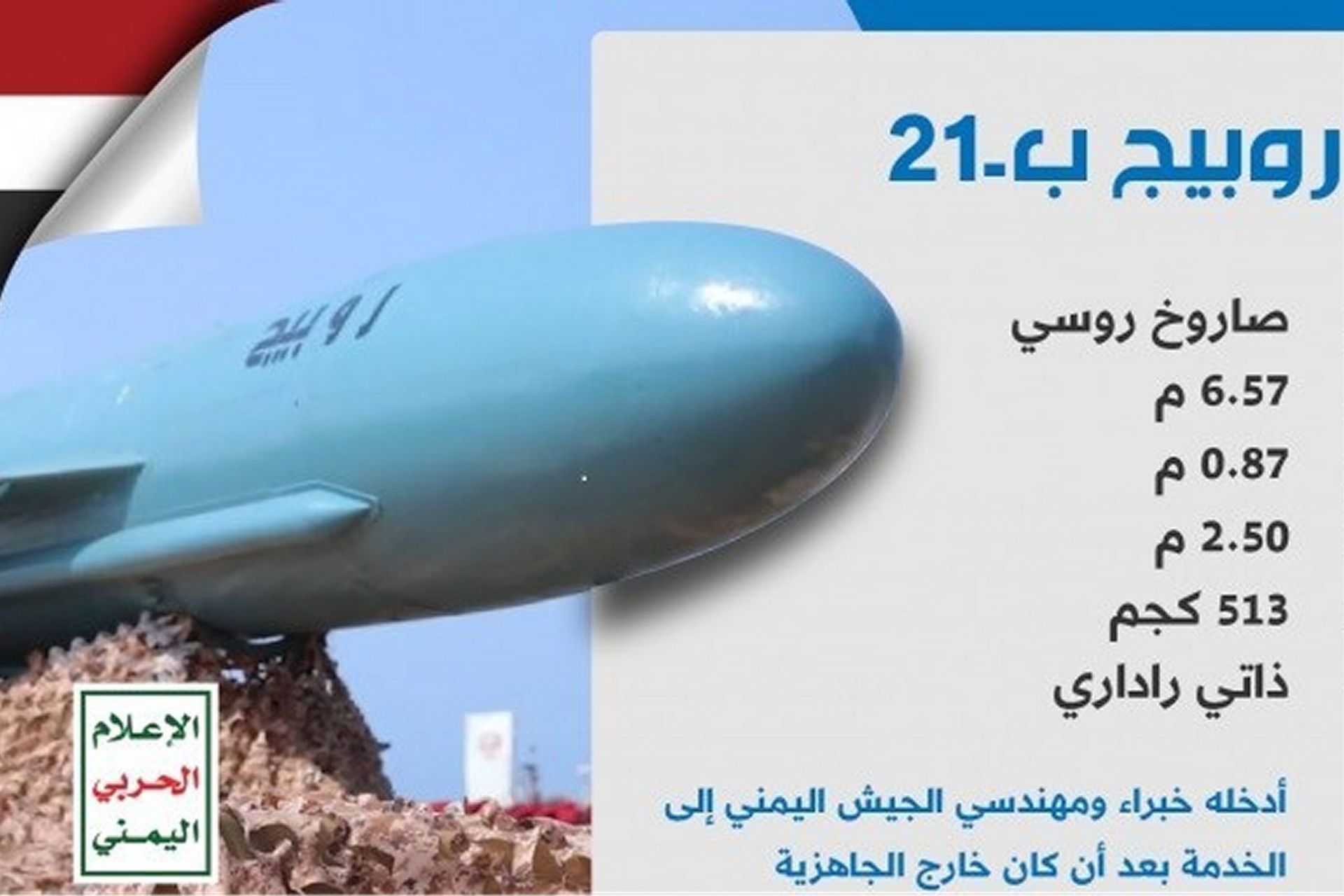Breaking News
Russia considering arming Houthi rebels with advanced anti-ship missiles US Intelligence reports.
According to information published by Business Insider on July 20, 2024, Russia is considering supplying Yemen's Houthi rebels with advanced anti-ship missiles. This potential move is believed to be in response to President Biden's approval of Ukraine's use of US-supplied weapons on Russian soil.
Follow Army Recognition on Google News at this link

Rubezh B-21 anti-ship missile data sheet. (Picture source: Houthis)
Reports indicate that Saudi Arabia previously convinced Russia not to provide the Houthis with such missiles, but recent intelligence suggests Moscow is reconsidering its stance. The US hopes to deter this action by using a third country as an intermediary.
Russia has previously condemned US and UK strikes against the Iran-backed Houthis, who have targeted Red Sea shipping as part of a broader campaign affecting the region. The Houthis have attacked commercial and naval vessels multiple times since October, intensifying pressure on Israel and the West amidst the Gaza conflict.
From October to May, the Houthis carried out at least 53 attacks on commercial ships and threatened naval vessels in numerous incidents. The US, in response, has conducted several strikes against Houthi targets, with the Dwight D. Eisenhower Carrier Strike Group firing over 500 munitions. Despite these efforts, concerns remain that the US response is insufficient.
The Houthis have possessed anti-ship missiles since they seized northern Yemen in 2014-2015, including the Soviet-era P-21 and P-22, and the Chinese C-801. It remains uncertain how many of these missiles are still operational, but recent acquisitions suggest they have obtained more advanced equipment.
Houthi political bureau member Ali al-Qahoum highlighted the deepening relations with Russia, China, and BRICS states, emphasizing the strategic aim to challenge Western influence in the region.
Comments
The presence of sophisticated missile systems in the hands of a non-state actor like the Houthis poses a significant challenge to naval operations in the region. The Houthis have already demonstrated their capability to use anti-ship missiles, and more advanced systems would only increase their threat level. This could lead to more aggressive patrolling and defensive measures by naval forces from the US, UK, and other nations with interests in the region.
The move could also signal a deepening military and strategic partnership between Russia and Iran. This alignment may embolden the Houthis and provide them with more resources and training, thereby intensifying the conflict in Yemen and potentially spilling over into broader regional conflicts.


























